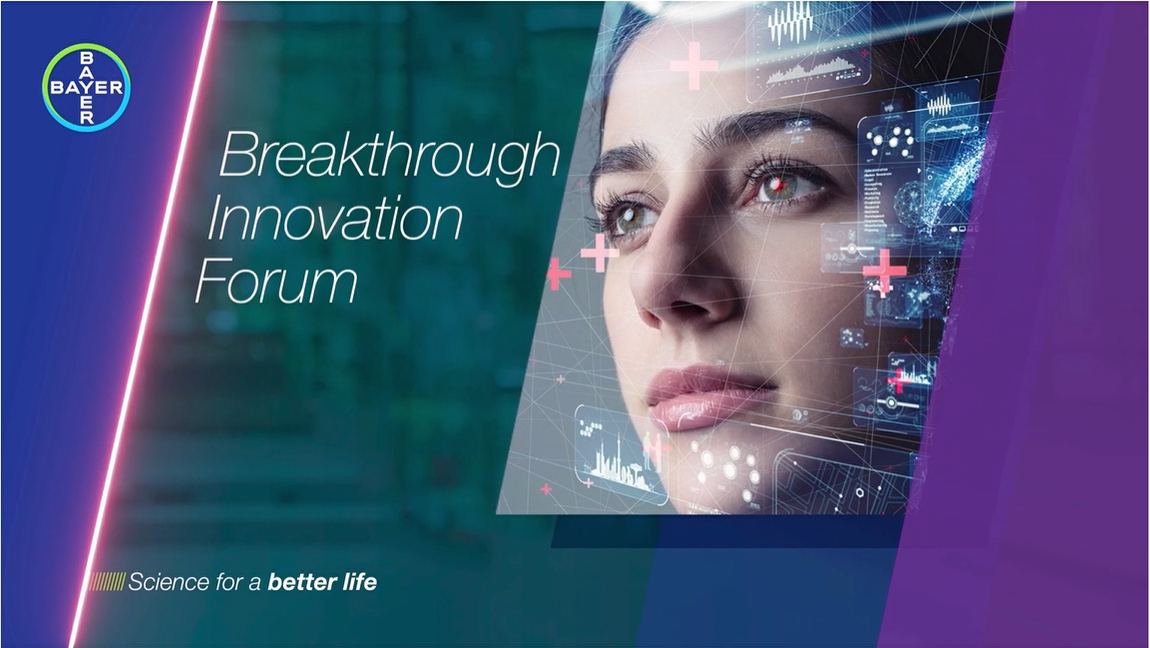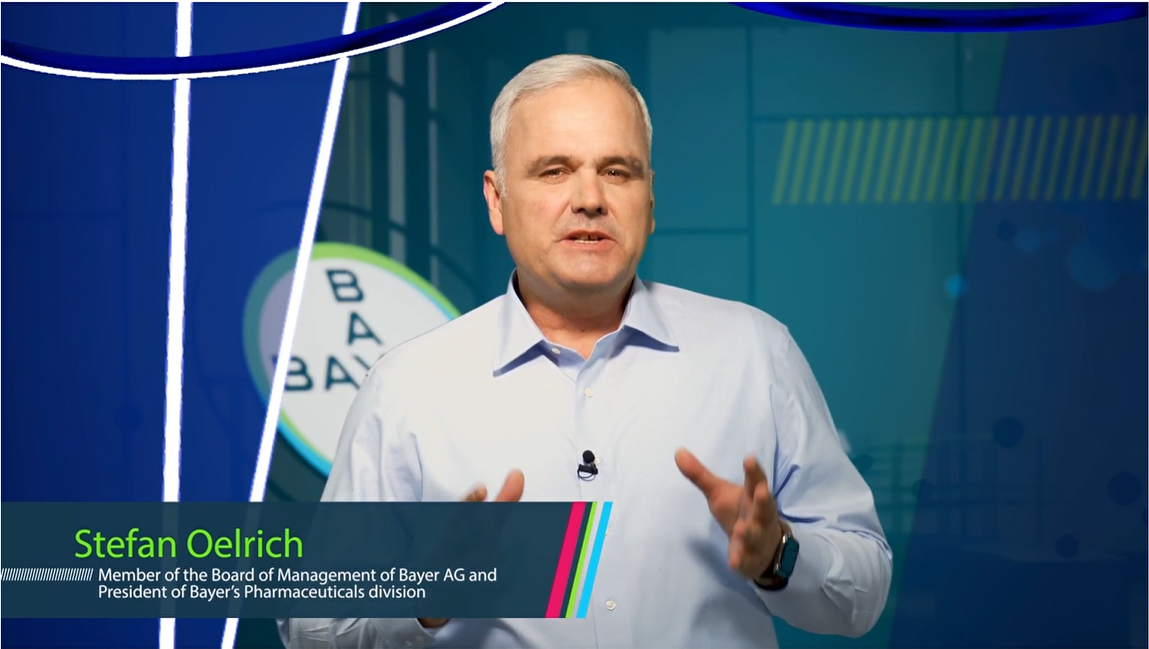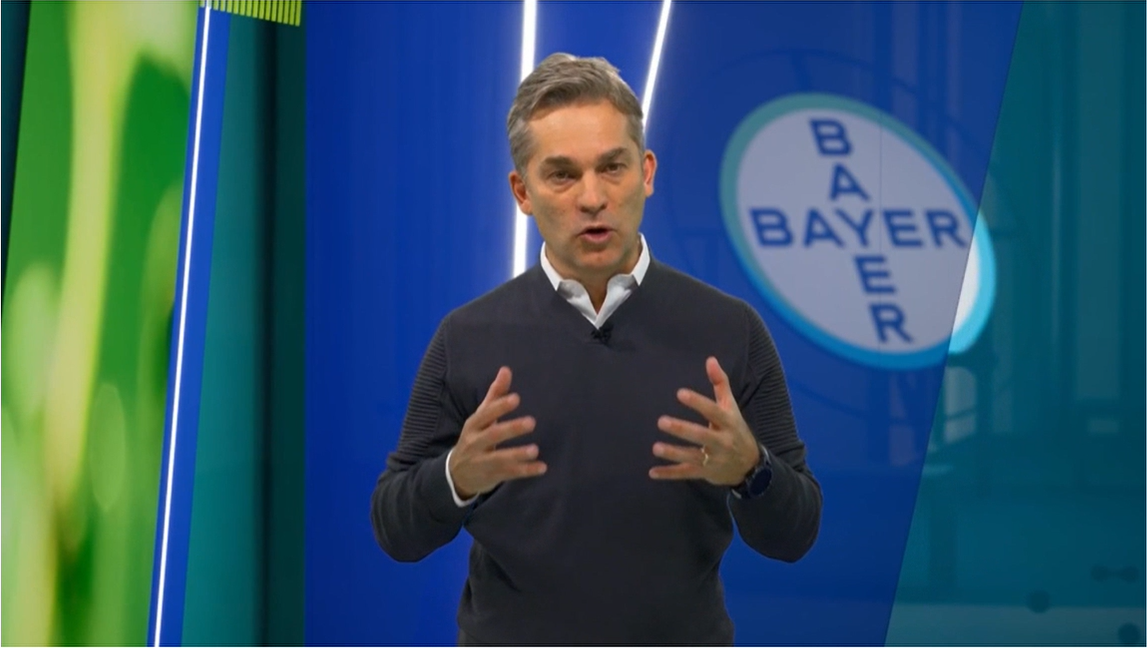Bayer set to drive breakthrough innovations in life sciences
 |
| Bayer is driving breakthrough innovations in the life sciences |
“We stand at the dawn of a new age of innovation in the life sciences,” said Werner Baumann, chairman of the board of management of Bayer AG.
"Our ability to tackle some of the greatest challenges is increasing rapidly. These range from providing answers for incurable diseases and equipping people with tools to live healthier and longer lives, to producing more agricultural output whilst significantly reducing inputs. This ability is driven by the accelerating confluence of biology, chemistry, advanced computing, data analytics, and artificial intelligence. As a leader in health and nutrition, Bayer is further stepping up its efforts to be a driver of this new era of innovation.”
Tackling humanity’s biggest challenges with Leaps by Bayer
Leaps by Bayer follows a unique approach aimed at tackling ten of humanity’s greatest challenges, including curing cancer and reducing the environmental impact of agriculture.
Jürgen Eckhardt, head of Leaps by Bayer said, “Over the past seven years, we have invested more than $1.4 billion across a portfolio comprising more than 50 companies.”
He added, “With Bayer stepping up its investment in Leaps over the coming years, we will be able to continue on our path to provide funding for the brightest minds working on solutions that truly make a difference for people and the planet.”
Leaps has embarked on numerous joint ventures – such as JoynBio and the former portfolio company BlueRock Therapeutics which is now fully owned by Bayer – and successfully led several investment rounds. One example is Recursion, an AI-focused company working to find new drug treatments for lung fibrosis and other fibrotic diseases, which successfully went public in April last year.
Driving breakthrough innovations in health and agriculture
This new era of innovation is expected to significantly enlarge the toolbox of technologies and enable scientists around the world to address areas of high unmet medical need.
Stefan Oelrich, member of the board of Bayer AG and president of the Pharmaceuticals division said, “The convergence of biology, chemistry, and data is opening up new ways to understand and treat disease. Breakthrough innovations and new technologies enable us to not only treat symptoms but to potentially stop or reverse the progression of a disease, offering the promise of treatment options that are truly transformative for patients.”
 |
| Stefan Oelrich elaborated on the future of health and the promises of new treatment options powered by new technologies |
Bayer is investing heavily in biomedical innovation, especially in cell and gene therapies. Over the past three years, it has invested more than $2.7 billion to build up a Cell and Gene Therapy Platform, including the acquisitions of BlueRock Therapeutics and Asklepios BioPharmaceutical.
In addition, Bayer is partnering in strategic collaborations with Atara Biotherapeutics and Mammoth Biosciences. The company’s strong cell and gene therapy portfolio is already benefitting its pipeline, with eight projects in various stages of clinical development. These include leading programmes in Parkinson’s disease, Pompe disease, and congestive heart failure.
Bayer has also significantly strengthened its drug discovery capabilities through its acquisition of Vividion Therapeutics, a biopharmaceutical company utilising novel discovery technologies to unlock traditionally undruggable targets with precision therapeutics.
The company is tapping into the potential of precision health in consumer healthcare. With its majority ownership of Care/of – a personalised nutrition company originally invested in by Bayer’s Leaps arm – Bayer is positioned to tap into the growth and future potential of the personalised supplements market.
The company has secured innovation partnerships in the field of healthy ageing, which use novel biological insights to inform how the right nutrition and lifestyle choices can improve cellular health. These efforts complement the company's portfolio of science-based nutritional supplements and health products, which have seen double-digit on-year growth in each of the past two years.
In terms of agriculture, Bayer is building on the power of emerging new technologies to create a sustainable and resilient food system. This will help growers around the world to produce more with fewer resources while reducing emissions and removing carbon from the atmosphere.
 |
| Renowned experts and Bayer executives illustrated how a forthcoming wave of innovations will open new opportunities in healthcare and agriculture |
Rodrigo Santos, member of the board of Bayer AG and president of the Crop Science division said, “Bayer’s annual research and development investment of $2.2 billion in its Crop Science division is unparalleled in the industry. It leads to a robust innovation pipeline spanning seeds and trait technologies, crop protection, and digital solutions valued at up to $33 billion over the next two decades.”
Leveraging its unparalleled digital farming platform, Bayer is a leading force in the decarbonisation of agriculture. The Bayer Carbon Initiative incentivises farmers to embrace the use of climate-smart practices such as no-till and cover crops.
With a foundation of RNAi technology, Bayer recently launched the first-ever biotech defence against corn rootworm, enabling farmers to control a pest that costs around $1.1 billion annually in crop damage.
With its short-stature corn, planned to launch as part of Bayer’s newly introduced Smart Corn System in 2023, Bayer is going to bring more weather-resistant plants to the market.
The use of next-generation technology to quantify and track the impact of these practices underlines Bayer’s pioneering role and its unique position in advancing digital capabilities for the food, feed, fuel, and fibre value chain.
What the stars mean:
★ Poor ★ ★ Promising ★★★ Good ★★★★ Very good ★★★★★ Exceptional
 Tag:
Tag:
Related Contents
Latest News
More News
- State corporations poised to drive 2026 growth (February 03, 2026 | 13:58)
- Why high-tech talent will define Vietnam’s growth (February 02, 2026 | 10:47)
- FMCG resilience amid varying storms (February 02, 2026 | 10:00)
- Customs reforms strengthen business confidence, support trade growth (February 01, 2026 | 08:20)
- Vietnam and US to launch sixth trade negotiation round (January 30, 2026 | 15:19)
- Digital publishing emerges as key growth driver in Vietnam (January 30, 2026 | 10:59)
- EVN signs key contract for Tri An hydropower expansion (January 30, 2026 | 10:57)
- Vietnam to lead trade growth in ASEAN (January 29, 2026 | 15:08)
- Carlsberg Vietnam delivers Lunar New Year support in central region (January 28, 2026 | 17:19)
- TikTok penalised $35,000 in Vietnam for consumer protection violations (January 28, 2026 | 17:15)






















 Mobile Version
Mobile Version